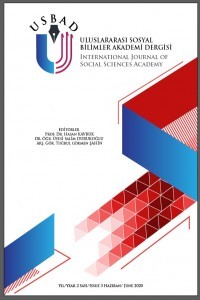Malinowski’ye Göre Dilin Edimsel İşlevi
Malinowski etnografya bilimindeki saha çalışmalarının bir uzantısı olarak dil hakkında teorik bir görüş geliştirmiş ve onu “edimsel” [pragmatic] diye nitelendirmiştir. Böyle bir nitelendirme yapmasının sebebi, yazısı olmayan yerli kabile lisanları kadar yazısı olan toplumların lisanlarında da bulunduğunu öne sürdüğü ortak bir işlevsel özelliktir: Genel olarak dil edimsel bir işleve sahiptir. Malinowski’ye göre, dilin, zihinsel sürece paralel giden ve ona tam olarak tekabül eden bir süreç olduğunu ve dilin işlevinin, insanın zihinsel gerçekliğini, sözel eşdeğerlerin ikincil bir akışında yansıtmak veya kopyalamak olduğunu savunan görüş hatalıdır. Malinowski’nin nezdinde dilin ana işlevi düşünceyi ifade etmek, zihinsel süreçleri kopyalamak değildir. Malinowski böylece, felsefe literatüründe sık rastlandığı kadar Boas gibi etnografların yazdıklarında da rastlanan “zihinci” ya da “bilişselci” karakterli dil ve anlam kuramlarına karşı çıkar. İster “iptidaî” denen kabilelerdeki ister “uygar” denen toplumlardaki lisanlar olsun, genel olarak dilin insan davranışında aktif edimsel bir rolü vardır. Malinowski dili, bütün müşterek insan eylemlerinin zorunlu bir bileşeni addeder. Ona göre dil sadece toplumsal hayatta kolektif iş görme (avlanma, tarım, savaş, vb.) durumlarında muhatabını/muhataplarını eyleme sevk etmedeki talimat verici ifade türlerinde değil, havadan sudan sohbet amaçlı ifade türlerinde de esasen toplumsal bir eylem karakteri taşır. Makalemizde, Malinowski’nin büyük bir etnograf ve dil antropolojisinin kurucusu olmasının yanında edim bilimi alanının isimsiz kahramanı olduğunu savunuyoruz. Onun dilin edimsel işlevine yaklaşımı ile Austin’in dilin icra edici işlevine dair analizleri ve söz edimleri kuramı arasındaki benzerliklere de işaret ediyoruz.
Anahtar Kelimeler:
Eylem Olarak Dil, Edim Bilimi, Söz Edimleri, Malinowski
The Pragmatic Function Of Language According To Malinowski
Malinowski developed a theoretical view on language as an extension of field studies within the scope of ethnography and characterized it as “pragmatic”. The reason why he made such a characterization, is a common functional feature, which he argues exists in the languages of literate societies as well as in illiterate native tribal languages: In general, language has a pragmatic function. According to Malinowski, the view that language is a process that runs parallel to and exactly corresponds to the mental process, and that the function of language is to reflect or copy human mental reality in a secondary stream of verbal equivalents, is wrong. For Malinowski, the main function of language is not to express thought, not to copy mental processes. Thus, Malinowski opposes theories of language and meaning with a “mentalist” or cognitivist” character, as often found in the literature of philosophy, as well as in the writings of some ethnographers such as Boas. Language in general has an active performative role in human behavior, whether it is languages in so-called “primitive” tribes or in so-called “civilized” societies. Malinowski considers language a necessary component of all concerted human actions. According to him, language has essentially a social action character, not only in the types of prescriptive expressions to prompt the interlocutor/interlocutors to action in cases of collective work in social life (hunting, agriculture, war, etc.), but also in the types of expressions intended for casual conversation. In our article, we argue that Malinowski is a great ethnographer and the founder of linguistic anthropology, as well as the nameless hero of field of the pragmatics. We also point out the similarities between his approach to the pragmatic function of language and Austin’s analyzes of the performative function of language and his theory of speech acts.
Keywords:
Language as Action, Pragmatics, Speech Acts, Malinowski,
___
- Austin, J. L. (1962). How to Do Things with Words. Oxford: Clarendon Press.
- Bussmann, H. (1996). Routledge Dictionary of Language and Linguistics, translated and edited by Gregory Trauth and Kerstin Kazzazi, New York and London: Routledge.
- Carnap, R. (1939). Foundations of Logic and Mathematics. Chicago: University of Chicago Press.
- Duman, S. (2022). Edimbilim. Ankara: Dorlion yayınları.
- Green, G. M. (1996). Pragmatics and Natural Language Understanding. New York: Routledge.
- Holtgraves, T. M. (2019). Sosyal Eylem Olarak Dil. Ankara: Nobel Akademik yay.
- Korta, K. (2007). Malinowski and Pragmatics Claim Making in the History of Linguistics. Journal of Pragmatic 40(2008), 1645–1660.
- Laurier, D. (1993). Introduction à la Philosophie du Langage, Liège: Pierre Mardaga.
- Lévi-Strauss. (Erişim tarihi: 19.01.2023) Antropoloji. (Çev). Ümid Meriç. Erişim Adresi: https://dergipark.org.tr/tr/download/article-file/101174
- Locke, J. (1975). An Essay Concerning Human Understanding. Oxford: Clarendon Press.
- Malinowski, B. (1923). The Problem of Meaning in Primitive Languages. in C. K. Ogden and A. Richard, The Meaning of Meaning - A Study of the Influence of Language upon Thought and of The Science of Symbolism, London: Kegan Paul, Trench, Trubner.
- Malinowski, B. (1935). Coral Gardens and Their Magic. Volume II: The Language of Magic and Gardening, London: George Allen&Unwin ltd.
- Malinowski, B. (1939). The Group and the Individual in Functional Analysis. American Journal of Sociology 44(6), 938-964.
- Malinowski, B. (1942). Man’s Culture and Man’s Behavior. Sigma Xi Quarterly 30(1), 66-78.
- Morris, C. W. (1938). Foundations of the Theory of Signs. Chicaco: Chicaco University Press.
- Ogden, C. K., & Richard, A. (1923). The Meaning of Meaning - A Study of the Influence of Language upon Thought and of the Science of Symbolism, London: Kegan Paul, Trench, Trubner.
- Perseus. πράγμα maddesi Erişim Adresi: https://www.perseus.tufts.edu/hopper/text?doc=Perseus:text:1999.04.0057:entry=pra=gma, Erişim tarihi: 10.01.2023.
- Récanati, F. (1981). Les Enoncés Performatif. Paris: Editions de Minuit.
- Récanati, F. (2003). Literal Meaning. Dijital Edisyon: https://core.ac.uk/download/pdf/46683729.pdf
- Ricoeur, P. (1990). Soi-Même Comme un Autre. Paris: Seuil.
- Robins, R. H. (1967). A Short History of Linguistics. Longman: London.
- Senft, G. (2007). Bronislaw Malinowski and Linguistic Pragmatics. Lodz Papers in Pragmatics 3, 79–96.
- Türk Dil Kurumu Güncel Türkçe Sözlük. Erişim Adresi: https://sozluk.gov.tr/, Erişim Tarihi: 10.01.2023.
- Başlangıç: 2019
- Yayıncı: Salim DURUKOĞLU
Sayıdaki Diğer Makaleler
Şair Eşref Şemizade’nin “Saylama Eserler”Adlı Eserinin İçerik Ve Üslup Özellikleri
Yunus Emre KARADUMAN, Arzu Sema ERTANE BAYDAR
Kemalizm Üzerine Bir Düşünce Notu
Malinowski’ye Göre Dilin Edimsel İşlevi
Foto Realizm’in Sanat Ontolojisi Bağlamında Temellendirilmesi Ve Anlamsal Boyutu
Sosyal Bilgiler Öğretmen Adaylarının Yaratıcı Düşünme Becerilerine İlişkin Görüşlerinin İncelenmesi
Türk Destanlarında Allah’ın İsim ve Sıfatları
